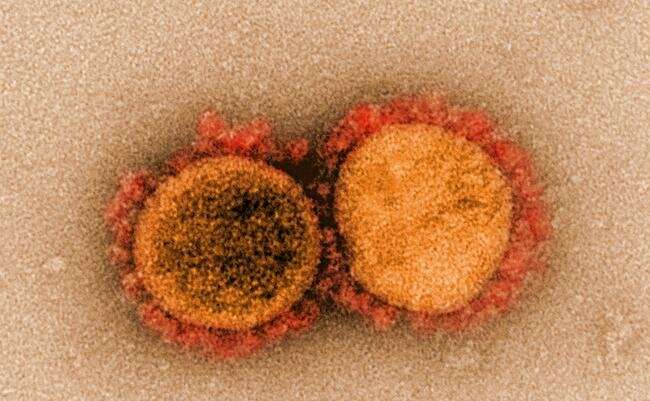Study uncovers mechanisms necessary for SARS-CoV-2 infection in macrophages

Dysregulation of macrophages during SARS-CoV-2 infection and the over-exuberant production of pro-inflammatory cytokines by these macrophages has been hypothesized to contribute to severity of COVID-19 disease. However, the mechanisms that contribute to the hyper-inflammatory response of macrophages has remained unclear.
Now, researchers from Boston University Chobanian & Avedisian School of Medicine have identified a receptor, CD169 (also called Siglec1), that is exclusively expressed on macrophages and contributes to the hyper-inflammatory response of macrophages upon infection with SARS-CoV-2. These findings may provide an explanation of how SARS-CoV-2 infection of macrophages in lungs of COVID-19 patients promote inflammatory responses.
"These macrophages do not express ACE2, the SARS-CoV-2 receptor. Rather SARS-CoV-2 entry in macrophages was facilitated by a lectin, CD169, which recognizes the spike protein of SARS-CoV-2," explained corresponding author Suryaram Gummuluru, Ph.D., professor of microbiology.
To test their theory, the researchers compared human macrophages that expressed CD169 and those that did not, and then exposed these cells to SARS-CoV-2.
"We found that macrophages expressing CD169 were highly permissive for viral entry and initiation of virus replication, but completion of the viral life cycle was blocked and prevented production of new infectious virus particles. Surprisingly, initiation of virus replication and expression of abortive viral transcripts in CD169+ macrophages, was sufficient to activate host surveillance mechanisms (innate immune response) and induce expression of pro-inflammatory responses," said Gummuluru.
The researchers hypothesize that persistent activation of viral sensing mechanisms that detect these viral replication intermediates in macrophages might contribute to aberrant inflammation associated with severe COVID-19 disease.
According to the researchers, future studies are needed to address the molecular details of this unique virus entry mechanism and the restricted virus replication in macrophages, and how this entry mechanism differs from the conventional ACE2-mediated entry pathway.
"Importantly, consideration of therapies that target this alternative virus entry mechanism are needed, as they might prove useful in ameliorating the harmful effects of SARS-CoV-2 infection in macrophages," he adds.
These findings appear online in the journal in PLoS Pathogens.
More information: Sallieu Jalloh et al, CD169-mediated restrictive SARS-CoV-2 infection of macrophages induces pro-inflammatory responses, PLoS Pathogens (2022). DOI: 10.1101/2022.03.29.486190 , journals.plos.org/plospathogen … journal.ppat.1010479




















